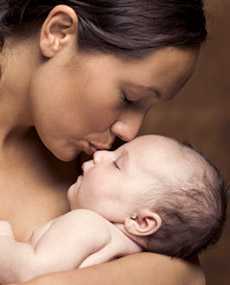Causes and Transmission
On This Page
Español: Causas y transmisión
Causes
Pertussis, a respiratory illness commonly known as whooping cough, is a very contagious disease caused by a type of bacteria called Bordetella pertussis. These bacteria attach to the cilia (tiny, hair-like extensions) that line part of the upper respiratory system. The bacteria release toxins (poisons), which damage the cilia and cause airways to swell.
Transmission

Pertussis is a very contagious disease only found in humans. Pertussis spreads from person to person. People with pertussis usually spread the disease to another person by coughing or sneezing or when spending a lot of time near one another where you share breathing space. Many babies who get pertussis are infected by older siblings, parents, or caregivers who might not even know they have the disease.
Infected people are most contagious up to about 2 weeks after the cough begins. Antibiotics may shorten the amount of time someone is contagious.
While pertussis vaccines are the most effective tool to prevent this disease, no vaccine is 100% effective. When pertussis circulates in the community, there is a chance that a fully vaccinated person, of any age, can catch this disease. If you have gotten the pertussis vaccine but still get sick, the infection is usually not as bad.
References
- Bisgard KM, Pascual FB, Ehresmann KR, et al. Infant pertussis: who was the source? Pediatr Infect Dis J. 2004;23:985–89.
- Skoff TH, Kenyon C, Cocoros N, et al. Sources of infant pertussis infections in the United States. Pediatrics. 2015;136:635–41.
- Wendelboe AM, Njamkepo E, Bourillon A, et al. Transmission of Bordetella pertussis to young infants. Pediatr Infect Dis J. 2007;26:293–99.
- Page last reviewed: August 7, 2017
- Page last updated: August 7, 2017
- Content source:


 ShareCompartir
ShareCompartir